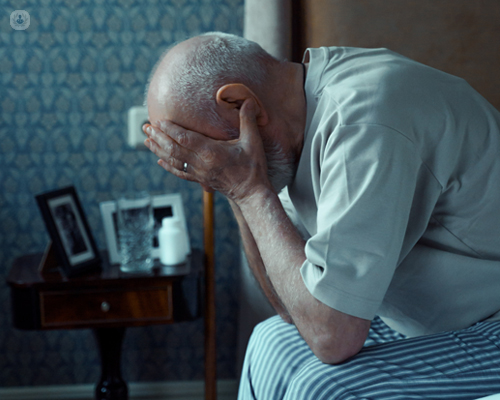Chronic kidney disease: Your questions answered
Autore:It’s good to know about the management of chronic kidney disease (CKD). There are things that you and your doctors can do to help you live a full life. However, if you are wondering whether you may have it, or are just beginning to adjust to life with the condition, it’s only natural you may ask questions about it.
Leading consultant nephrologist Dr Mark Thomas, who is one of the best kidney specialists in the UK, provides expert advice regarding frequent queries about CKD. Read on to find out more.

What is chronic kidney disease (CKD)?
CKD is kidney trouble that is a longer-term condition. In other words, it isn’t a temporary upset of the kidneys. The term ‘chronic’ refers to its longer-term nature, and not its severity. It can be due to a long-term problem with the structure of the kidneys, such as the loss of one kidney. It can also be due to reduced function of the kidneys.
What are the most common causes of chronic kidney disease (CKD)?
There are many possible causes of chronic kidney damage or disease. In the UK the most common conditions to damage the kidneys include diabetes and high blood pressure.
Is it hereditary?
In most cases, CKD is not hereditary in a straightforward, obvious fashion. In a small minority of cases, it can be inherited; in polycystic kidney disease, for example.
What are the symptoms of chronic kidney disease?
Many patients have no symptoms, and they are only diagnosed when they have a blood test showing reduced kidney function. Common symptoms include:
- Persistent tiredness or fatigue
- Passing urine more frequently, particularly at night, or
- Leg swelling
Symptoms tend to increase if the kidney function worsens.
What is healthy - and what is my - kidney function?
Kidney function is measured as the amount (millilitres) of blood cleaned per minute: the glomerular filtration rate (GFR). The standard kidney blood test gives a crude estimate of the GFR, hence called the eGFR (estimated GFR). Here is a guide to healthy kidneys:
- A healthy person aged 20 years will have an eGFR of more than about 100 ml per minute
- The kidneys get older along with the rest of our body
- A healthy person aged 50 years will have an eGFR of more than about 70 ml per minute
- A healthy person aged 80 years will have an eGFR of more than about 40 ml per minute
Can chronic kidney disease lead to other health complications?
Yes, it particularly increases the risk of heart attack, stroke and high blood pressure. Preventing this will be discussed in your consultation with Dr Thomas. Most patients do not go on to require kidney dialysis and/or kidney transplantation. A minority of patients do have worsening kidney function that may ultimately need kidney dialysis and/or kidney transplantation.
Can chronic kidney disease be cured?
No. Usually chronic kidney disease cannot be cured and the damage is usually permanent. However, with medical treatment and lifestyle change, in most cases it can be stabilised. There are now various medications used to treat patients with chronic kidney disease. The best way to maintain the health of you and your kidneys will be discussed in your consultation with Dr Thomas.
If you're concerned about CKD, Dr Thomas can provide leading medical services. Arrange an appointment with him via his Top Doctors profile.


